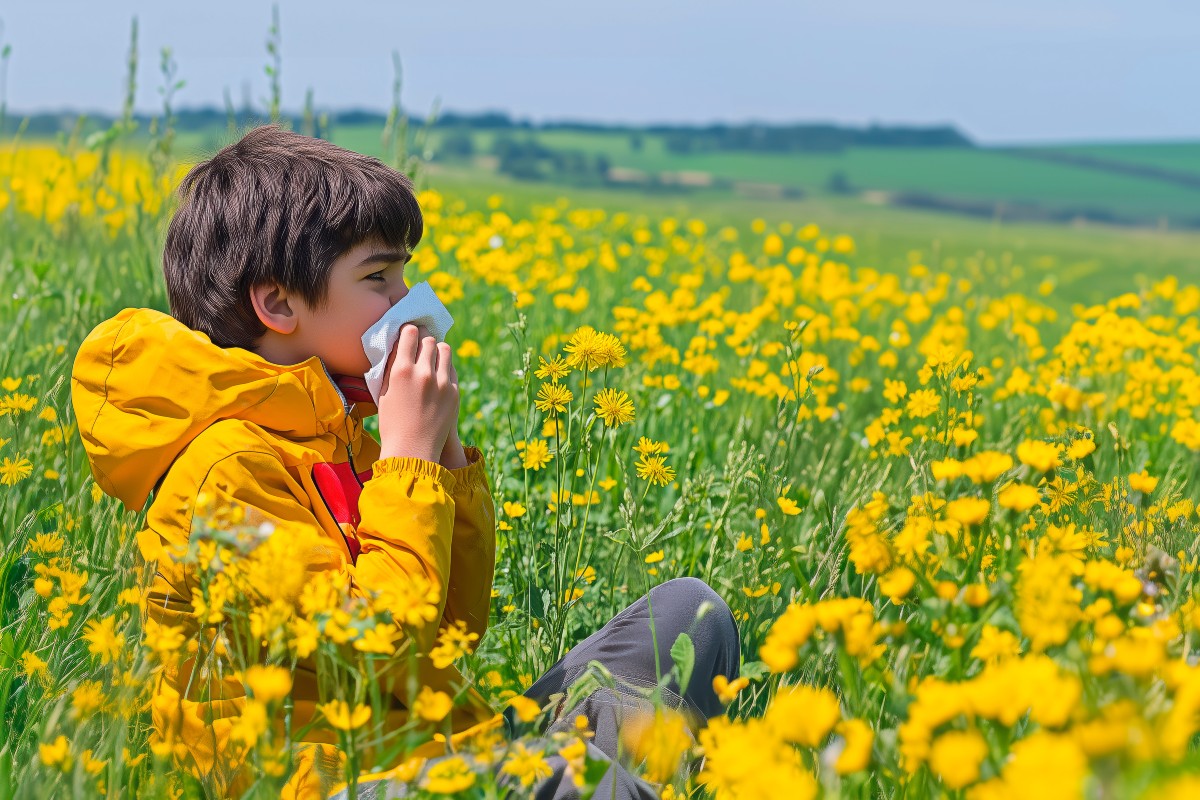
When Is Hay Fever Season?
Hay fever season is the time of year when we swap snuggling up under the duvet for sneezing into endless tissues. If you’re one of the unlucky ones who suffer from hay fever, you’ll know all too well how it can ruin a good night’s sleep. But when exactly is hay fever season, and how can you keep your bedroom a sneeze-free sanctuary? Let’s dive in.
When is hay fever season in the UK?
Hay fever is triggered by pollen, and in the UK, it follows a seasonal pattern. The main culprits? Grass, tree, and weed pollen, each with their own schedules:
-
Tree pollen: Kicks off the season from late March to mid-May. Birch, oak, and horse chestnut trees are the UK’s main trouble causers (1).
-
Grass pollen: Peaks between mid-May and July and affects the most people (2).
-
Weed pollen: Sticks around from June to September, with common weeds including nettle and mugwort causing havoc for hay fever sufferers (3).
So, if you suffer from hay fever, you could be battling symptoms for half of the year or more.
What are the symptoms of hay fever?
Hay fever symptoms can vary from person to person, but the most common ones include:
-
Sneezing – Often in rapid, uncontrollable bursts.
-
Runny or blocked nose – Making it harder to breathe properly, especially at night.
-
Itchy, watery eyes – Leaving you looking and feeling like you’ve been crying all day.
-
Itchy throat, mouth, nose, and ears – A frustrating tickling sensation that won’t go away.
-
Coughing – Caused by postnasal drip (when mucus runs down the back of your throat)(4).
-
Fatigue – Hay fever can make you feel drained, especially if it’s disturbing your sleep.
How hay fever ruins sleep
Hay fever isn’t just about daytime sniffles. At night, symptoms can feel even worse, thanks to pollen settling indoors, stuffy noses, and itchy eyes that make getting comfy nearly impossible. Poor sleep can leave you feeling groggy, irritable, and totally unrefreshed—exactly the opposite of what we want from bedtime!
Top tips for sleeping better during hay fever season
Luckily, there are some easy ways to keep pollen at bay and improve your chances of getting a restful night’s sleep. These include:
-
Keep windows closed – It can be extremely tempting to let fresh air in, but we strongly advise against this. An open window invites pollen straight into your bedroom. You can always look to invest in an air purifier instead.
-
Shower before bed – Pollen loves to cling to hair and skin, so rinsing it off before getting into your bedsheets will help to keep it out of your bed.
-
Choose hypoallergenic bedding – A mattress and pillows with anti-allergy properties can make a huge difference in reducing irritation.
-
Wash your bedding regularly – Dust, pollen, and other allergens build up fast, so aim to wash your sheets at least once a week.
-
Vacuum and dust often – A clean bedroom is a pollen-free bedroom. Pay special attention to carpets and curtains where allergens like to hide.
-
Use a high-quality mattress protector – A mattress protector adds an extra barrier against dust mites and allergens, helping you breathe easier at night.
-
Try a nasal spray or antihistamines – If symptoms persist, taking medication before bed can help stop sneezing and congestion from ruining your sleep. Though we’d always advise checking in with your GP before taking any new medication.
Can hay fever cause headaches?
Yes, hay fever can absolutely cause headaches! These are often referred to as sinus headaches, as they result from inflammation and congestion in your sinuses. When your nasal passages become blocked due to pollen exposure, pressure builds up, leading to a dull, throbbing pain around your forehead, eyes, and cheeks (5). Other factors, like dehydration and lack of sleep due to hay fever symptoms, can also contribute to headaches.
To help reduce hay fever-related headaches, try the following:
-
Stay hydrated to keep your sinuses clear.
-
Use a saline nasal spray to reduce congestion.
-
Take antihistamines to manage symptoms.
-
Apply a warm compress to relieve sinus pressure.
-
Keep your bedroom allergen-free for better sleep and recovery (6).
Preparing for hay fever season
Hay fever season might be unavoidable, but it doesn’t have to ruin your sleep. With a few simple changes — like upgrading to hypoallergenic bedding and keeping your bedroom as pollen-free as humanly possible — you can still enjoy restful nights.
Looking for the perfect mattress to support you through allergy season and beyond? Check out our range of hypoallergenic beds and mattresses designed to help you breathe easy and sleep soundly. Pop into your local Bensons for Beds store and chat with one of our sleep experts for personalised product recommendations to combat hay fever symptoms at night.
Sources:

Gemma Henry - Content Lead
Gemma finds sleep fascinating and describes the discovery aspect of her role as eye-opening. Her keen eye for detail and dedication to thorough research ensures that Bensons customers get the informative sleep-based advice they're looking for.